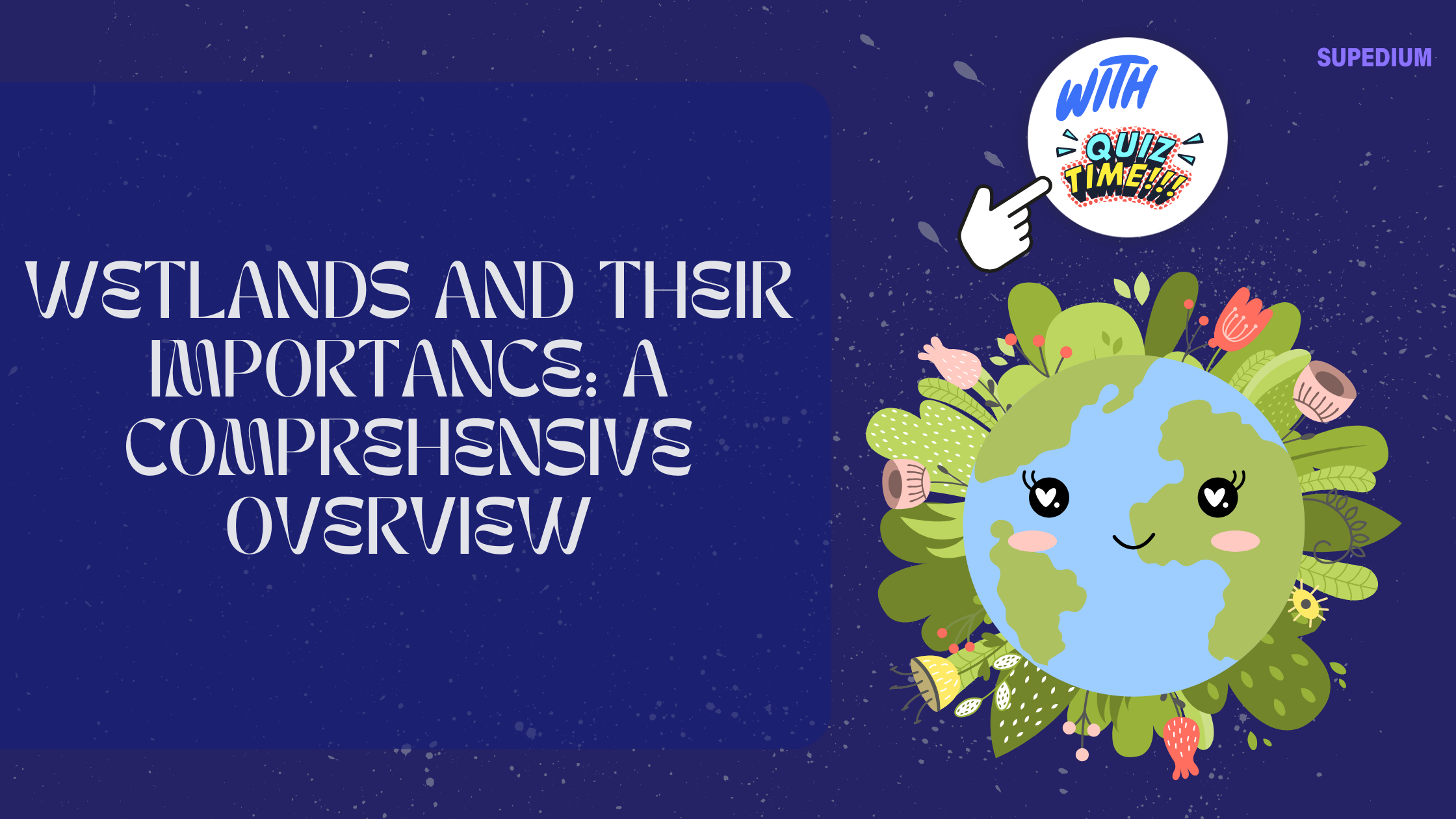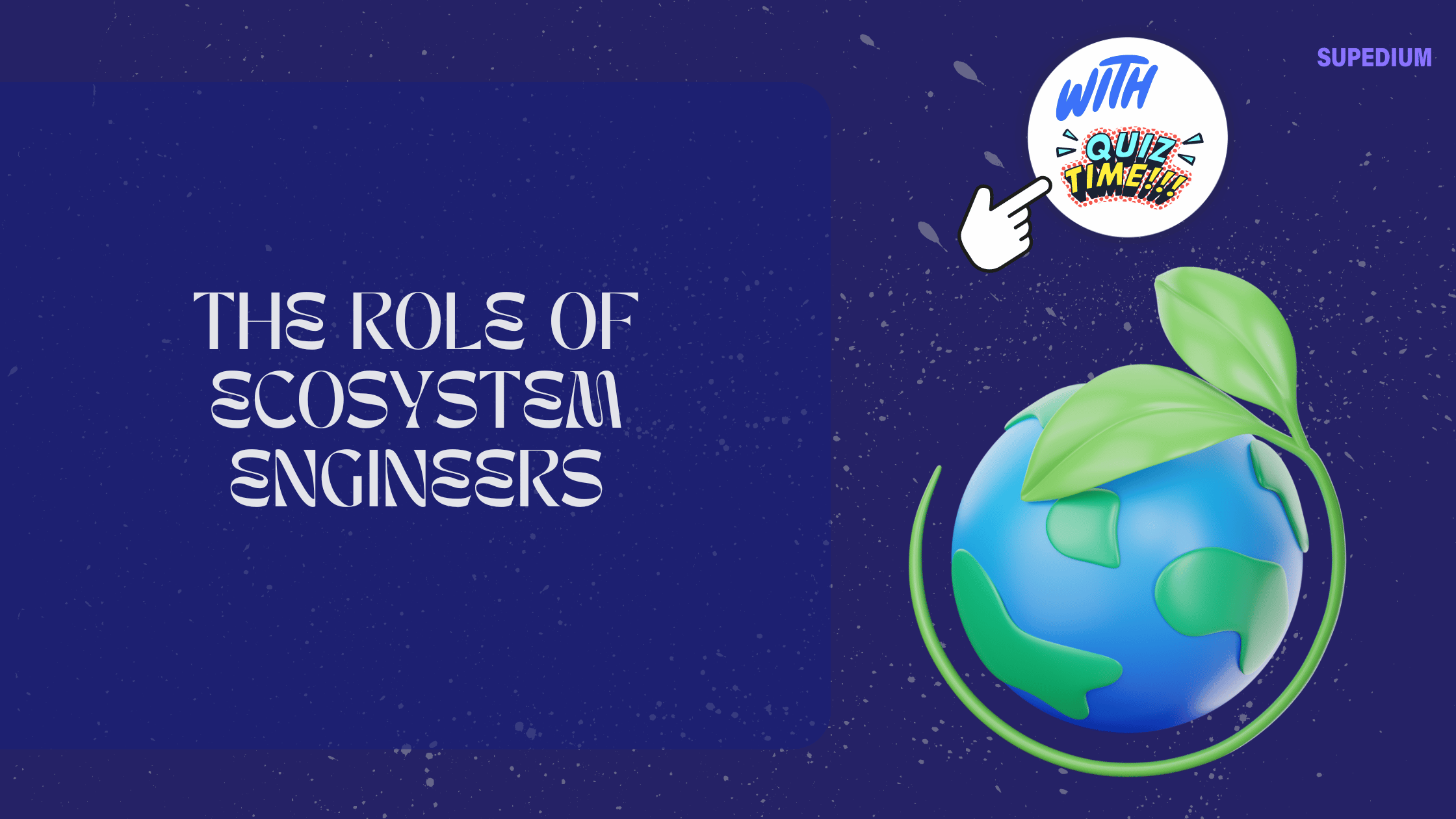Table of Contents
![]()
Wetlands are among the most vital and diverse ecosystems on Earth. They are characterized by their water-saturated conditions, which influence the types of plants and animals that can thrive there. Covering approximately 6% of the Earth’s surface, wetlands play a crucial role in maintaining ecological balance, supporting biodiversity, and providing numerous benefits to humanity.
Types of Wetlands
Wetlands encompass a variety of types, each with unique characteristics and ecological functions:
1. Marshes Marshes are wetlands dominated by herbaceous plants like grasses, sedges, and reeds. They are typically found in shallow areas of lakes and along rivers. Marshes are crucial for water filtration and provide habitat for a wide range of wildlife, including amphibians, birds, and insects.
2. Swamps Swamps are characterized by the presence of woody plants such as trees and shrubs. They are often found in areas with standing water for extended periods. Swamps support diverse plant and animal life and play a significant role in water regulation and carbon sequestration.
3. Bogs Bogs are wetlands with acidic, nutrient-poor conditions. They are often dominated by sphagnum moss and have a slow rate of decomposition, leading to the accumulation of peat. Bogs provide habitat for specialized plant species and play a critical role in carbon storage.
4. Fens Fens are wetlands with alkaline, nutrient-rich conditions. They support a variety of grasses, sedges, and shrubs. Fens are important for maintaining groundwater levels and providing habitat for many rare and endangered species.
5. Other Wetland Types
- Mangroves: Coastal wetlands found in tropical and subtropical regions, characterized by salt-tolerant trees and complex root systems that stabilize shorelines.
- Estuaries: Where freshwater from rivers meets saltwater from the ocean, creating highly productive areas with a diverse range of species.
- Floodplains: Low-lying areas adjacent to rivers that are periodically inundated, playing a key role in flood control and nutrient cycling.
Ecological Importance of Wetlands
Wetlands offer numerous ecological benefits that are vital for the health of our planet:
1. Biodiversity Wetlands are rich in biodiversity, providing habitat for a multitude of species. They support various plants, insects, birds, amphibians, and fish, many of which are specially adapted to these environments. Wetlands are also crucial for migratory species, offering resting and feeding grounds during their journeys.
2. Water Regulation Wetlands play a critical role in water management. They act as natural filters, removing pollutants and excess nutrients from water before it flows into larger bodies of water. Additionally, wetlands help in groundwater recharge and mitigate flood impacts by absorbing excess water during heavy rains.
3. Carbon Sequestration Wetlands are highly effective at storing carbon, which helps mitigate climate change. Peatlands, in particular, sequester large amounts of carbon dioxide, making them essential in global carbon cycling. Compared to other ecosystems, wetlands store carbon more efficiently due to their slow decomposition rates.
4. Soil Formation and Erosion Control Wetlands contribute to soil formation and prevent erosion. The accumulation of organic matter in wetlands enhances soil fertility and stability. Their vegetation helps stabilize soil and reduce the impact of erosion caused by water or wind.
Human Benefits of Wetlands
In addition to their ecological significance, wetlands offer several direct benefits to humans:
1. Economic Value Wetlands support various economic activities. They are essential for fisheries, providing breeding grounds for many commercially important fish species. Wetlands also contribute to agriculture by enhancing soil fertility. Moreover, they attract tourists and outdoor enthusiasts, contributing to local economies through recreation and ecotourism.
2. Cultural and Aesthetic Value Wetlands hold cultural significance for many communities, often featuring in traditional practices and folklore. They offer aesthetic and recreational opportunities, including birdwatching, fishing, and nature photography, enriching people’s lives and well-being.
3. Health Benefits Interactions with natural environments, such as wetlands, have been shown to improve mental health and well-being. The serene and natural settings of wetlands offer relaxation and stress relief. Additionally, wetlands can help regulate diseases by filtering out pollutants and providing habitat for species that control pest populations.
Threats to Wetlands
Despite their importance, wetlands face several threats:
1. Environmental Threats
- Pollution: Wetlands are vulnerable to pollution from chemicals, nutrients, and plastics. Pollutants can degrade water quality and harm wildlife.
- Climate Change: Rising temperatures and sea levels affect wetlands by altering water regimes and increasing the risk of flooding or drying out.
2. Human Activities
- Urban Development: Expansion of cities and infrastructure often leads to the draining and conversion of wetlands into other land uses.
- Agriculture: Drainage for agricultural purposes reduces wetland area and disrupts ecological functions.
3. Invasive Species Invasive species can outcompete native plants and animals, disrupting ecosystem balance. They can alter habitat conditions, leading to declines in native biodiversity and changes in wetland functions.
Conservation Efforts
Efforts to conserve and restore wetlands are essential to maintaining their ecological functions and benefits:
1. Legal and Policy Framework
- International Agreements: The Ramsar Convention, an international treaty, aims to protect wetlands of international importance. Various national and local regulations also contribute to wetland conservation.
2. Restoration Projects Successful wetland restoration projects involve techniques such as reintroducing native plant species, restoring natural hydrological processes, and removing invasive species. Examples include the restoration of the Florida Everglades and the rewetting of drained peatlands in Europe.
3. Community and Educational Initiatives Public awareness campaigns and educational programs help increase understanding of wetland importance and promote conservation efforts. Engaging local communities in conservation activities fosters stewardship and support for wetland protection.
Future Directions and Challenges
Looking ahead, several challenges and opportunities exist for wetland conservation:
1. Advancements in Wetland Science Ongoing research and technological advancements are enhancing our understanding of wetland functions and improving conservation practices. Integrating traditional knowledge with scientific approaches can lead to more effective management strategies.
2. Balancing Development and Conservation Finding a balance between development and wetland conservation is crucial. Sustainable development strategies, such as incorporating wetland protection into land-use planning and fostering green infrastructure, can help achieve this balance.
Conclusion
Wetlands are invaluable ecosystems that support biodiversity, regulate water, store carbon, and provide numerous benefits to humans. Protecting and restoring these areas is vital for maintaining ecological health and ensuring that future generations can continue to enjoy and benefit from their unique qualities. Continued research, conservation efforts, and public engagement are essential in safeguarding wetlands for the future.






Be the first to comment